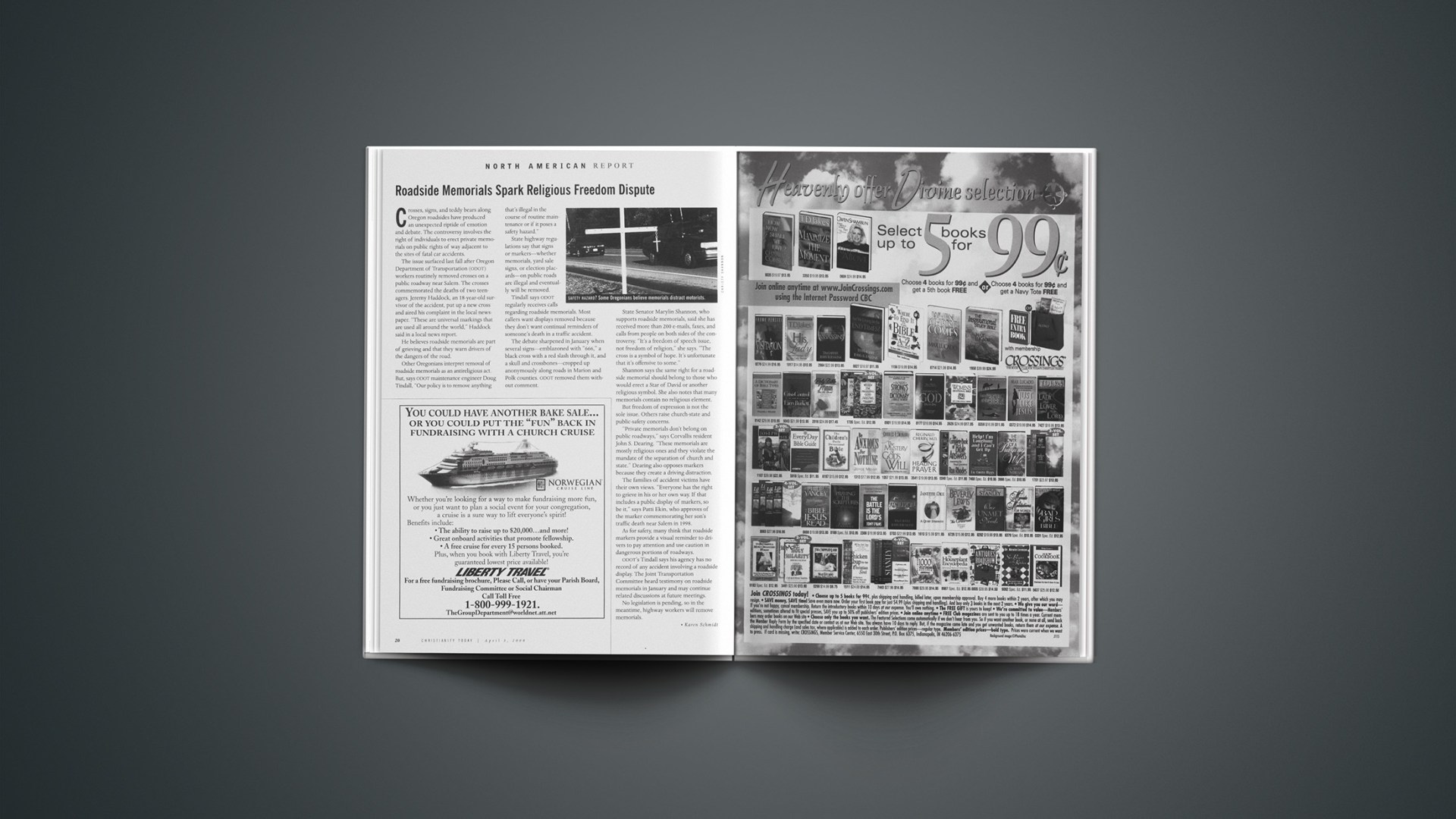Crosses, signs, and teddy bears along Oregon roadsides have produced an unexpected riptide of emotion and debate. The controversy involves the right of individuals to erect private memorials on public rights of way adjacent to the sites of fatal car accidents.
The issue surfaced last fall after Oregon Department of Transportation (ODOT) workers routinely removed crosses on a public roadway near Salem. The crosses commemorated the deaths of two teenagers. Jeremy Haddock, an 18-year-old survivor of the accident, put up a new cross and aired his complaint in the local newspaper. “These are universal markings that are used all around the world,” Haddock said in a local news report.
He believes roadside memorials are part of grieving and that they warn drivers of the dangers of the road.
Other Oregonians interpret removal of roadside memorials as an antireligious act. But, says ODOT maintenance engineer Doug Tindall, “Our policy is to remove anything that’s illegal in the course of routine maintenance or if it poses a safety hazard.”
State highway regulations say that signs or markers—whether memorials, yard sale signs, or election placards—on public roads are illegal and eventually will be removed.
Tindall says ODOT regularly receives calls regarding roadside memorials. Most callers want displays removed because they don’t want continual reminders of someone’s death in a traffic accident.
The debate sharpened in January when several signs—emblazoned with “666,” a black cross with a red slash through it, and a skull and crossbones—cropped up anonymously along roads in Marion and Polk counties. ODOT removed them without comment.
State Senator Marylin Shannon, who supports roadside memorials, said she has received more than 200 e-mails, faxes, and calls from people on both sides of the controversy. “It’s a freedom of speech issue, not freedom of religion,” she says. “The cross is a symbol of hope. It’s unfortunate that it’s offensive to some.”
Shannon says the same right for a roadside memorial should belong to those who would erect a Star of David or another religious symbol. She also notes that many memorials contain no religious element.
But freedom of expression is not the sole issue. Others raise church-state and public-safety concerns.
“Private memorials don’t belong on public roadways,” says Corvallis resident John S. Dearing. “These memorials are mostly religious ones and they violate the mandate of the separation of church and state.” Dearing also opposes markers because they create a driving distraction.
The families of accident victims have their own views. “Everyone has the right to grieve in his or her own way. If that includes a public display of markers, so be it,” says Patti Ekin, who approves of the marker commemorating her son’s traffic death near Salem in 1998.
As for safety, many think that roadside markers provide a visual reminder to drivers to pay attention and use caution in dangerous portions of roadways.
ODOT’s Tindall says his agency has no record of any accident involving a roadside display. The Joint Transportation Committee heard testimony on roadside memorials in January and may continue related discussions at future meetings.
No legislation is pending, so in the meantime, highway workers will remove memorials.
Copyright © 2000 Christianity Today. Click for reprint information.










